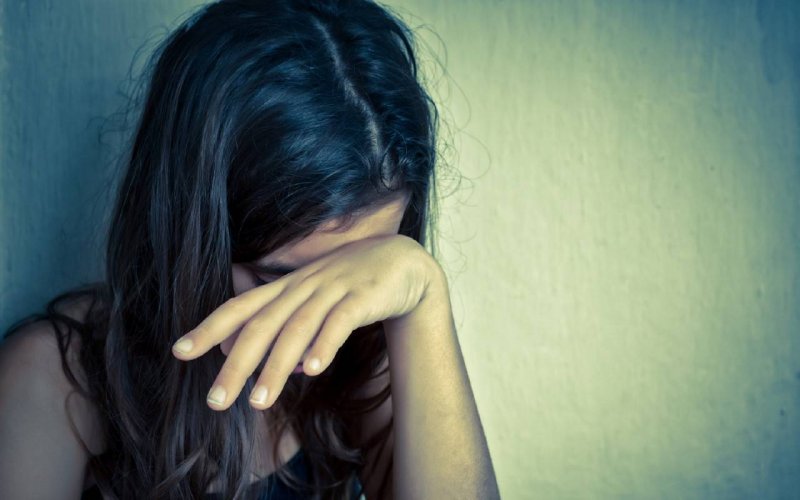If the prospect of obtaining contraceptives is not daunting enough for a woman in the Arab world, the prospect of getting an abortion are certainly daunting. With very few exceptions, most Arab countries only permit abortions in cases where the woman’s life or health is threatened, and in some cases, it is extended to pregnancies from rape or incest. According to a study by the US-based Guttmacher Institute, abortions are more prevalent in developing countries—often where contraception is not widely available—while almost all deaths from unsafe abortions occur in the developing world.
Despite the laws criminalizing abortion in Arab countries, there are no indications that these are a deterrent. Instead, women are often exposed to unnecessary risk by seeking out their abortions through illegal means. According to a World Health Organization report, 21.6 million unsafe abortions are conducted worldwide per year, most of which take place in developing countries. Some five million cases require the mothers to be admitted to hospitals for treatment, while about 47,000 women die of the complications of unsafe abortions every year.
In most Arab countries, laws stipulate that a physician must approve the procedure, along with a special medical committee. In addition to this, Saudi Arabian laws require the approval of woman’s “guardian” as well (i.e. her father, husband or brother). The penalties for abortions vary across the Arab world, generally ranging between prison time and fines, or both. The only notable exception is Tunisia, where safe abortions are available at government hospitals and licensed clinics, so long as it is within the first trimester of the pregnancy. Moreover, women are not required to provide their reasons for undergoing the procedure.
Testimonies on Illegal Abortion
Aziza became pregnant out of wedlock. She tells Raseef22 that she aborted the baby just nine days after learning about her pregnancy. Yet, she describes the experience as the most difficult of her life. "I was afraid of my family and the conservative community in Upper Egypt," she recalls. "At first I thought about taking certain medications, but I feared the consequences, so I decided to go to a doctor who is known for performing abortions." Though she had only set aside 5,000 Egyptian pounds ($275) for the procedure, she ended up paying 7,000 pounds—a sizable sum considering that many Egyptians’ salaries do not even meet the minimum wage set at 1,200 Egyptians pounds. Despite her ordeal, she was very lucky—unlike many others who have undergone the procedure illegally, Aziza did not suffer adverse side-effects on her health.
Another young Egyptian woman, Samira, tells Raseef22 that her friend became pregnant in an extramarital relationship. Unable to find a doctor to agree to perform a safe abortion, she had to resort to unlicensed clinics that attempted to exploit her financially. Eventually, she tried to abort the baby at home by taking a large dose of drugs that are prohibited during pregnancy.
Samira's friend suffered severe hemorrhaging, and almost lost her life. Despite the severe pain she endured, Samira could not take her friend to the hospital, for fear of being reported to the authorities. She tried to care for her at home until she slowly recovered. "She was on the verge of death," she said. "I hope that in the future, women will be provided with a place where they can undergo a safe abortion, so that no other women would have to endure the same tragedy." In addition to unsafe procedures, women seeking abortions are often exposed to financial blackmail. Doctors notoriously exploit their vulnerable position by threatening to report them unless they pay them large sums of money. Such was the experience of Khadija when she sought an abortion in Morocco.
“Abortions are conducted under suspect circumstances in Morocco, to avoid legal accountability. Moreover, we are often exposed to demeaning forms of blackmail to acquire safe medical procedures,” she tells Raseef22.
Another prevalent issue faced by Moroccan is doctors refusing to perform the surgery. “Most doctors refuse to even consider the idea, either for religious reasons, or for fear of legal reprisal. Those who do agree to perform the procedure are very rare, and difficult to find,” Khadija says. Further, in addition to financial extortion, women are exposed to other types of blackmail.
Habiba, an Egyptian woman, was subjected to a different type of exploitation, says: “It wasn’t difficult to find a doctor to perform the abortion, because this doctor was my friend, but to be honest, he tried to make moves on me.”. Another Egyptian, Amira, says: “I had to undergo two abortions, as both times I was not married. The psychological pain following the procedure is the hardest thing I ever went through in my life. Women bear the consequences of losing the fetus alone, along with the maternal instincts that develop during that period. In reality, we do not have the right to keep this child and have him/her registered under our name. We get rid of the fetus out for fear of our society alone, nothing more.”
What Do Doctors Have to Say?
The majority of the doctors surveyed by Raseef22 on their opinions regarding conducting abortions expressed their refusal—whether for religious reasons, or out of fear of the legal and professional repercussions that would ensue. A number of Egyptian doctors even refused to openly discuss the matter, noting that the Ministry of Health bans doctors from expressing support for the practice. Failure to comply could result in legal penalties. An Egyptian doctor, M. M., says, “Expressing pro-choice opinions could expose me to questioning and having my medical license revoked.” Another doctor, H. M. says, “Doctors who perform such procedures earn a reputation very quickly, so no matter how convinced you are of the need for abortion, you cannot risk it. Society treats women who seek abortions like "prostitutes", even if they are married. What then of a female doctor performing those procedures? Not to mention the fact that it could end my career.”
The Business of Illegal Abortions
Where legitimate means are lacking, illegal solutions flourish, particularly in the low-income communities in Arab countries. In these unsanitary and unsafe environments, the prospect of getting an abortion—ultimately, a simple, low-risk procedure—becomes a major risk, with a tremendous price tags. Illegal abortion clinics are often run by nursing staff or former doctors. Many of them view the women visiting them as having compromised morals, and in turn treat them as such. Many women are also exposed to financial blackmail, extortion, and sexual harassment. Some doctors demand a sexual bribe to perform the abortion.
Abortion Pills: The Last Resort
Abortion pills are sold under several commercial names, such as Cytotec. However, obtaining them requires a prescription, which has resulted in a widespread smuggling industry for the pills, which are then sold on the black market, particularly in Saudi Arabia, UAE, Qatar, and Kuwait. In Egypt, the situation is slightly different. Pharmacist Shadi Abdel-Hafiz says Misotac (another commercial-brand formulation of misoprostol) used to be widely available at pharmacies at the meagre sum of 11 Egyptian pounds ($0.60). However, the government subsequently banned the medication from pharmacies—yet, some places still sell the drug illegally, at EGP 50 per pack. Cytotec is also available on the black market.
Despite the ban, Abdel-Hafiz says no government officials have ever followed up on the number of Misotac pills sold in his pharmacy, and thus he is unaware of the legal repercussions for selling it. Nonetheless, he abides by the law to safeguard the pharmacy’s reputation, Moreover, he does not wish to bear the responsibility for any severe consequences of medical abortions without follow-ups with doctors. He explains that complications of medical abortions include severe hemorrhaging, or the occurrence of a partial abortion, where part of the fetus remains in the uterus, where it can decompose and cause toxic shock syndrome—all of which are potentially fatal complications.
Popular ‘Recipes’, Fatal Repercussions
Not all women can afford an abortion or obtain access to medications, leaving many to resort to popular recipes and brews to terminate pregnancies. Among the most famous Arab popular recipes for abortion are concentrated cinnamon tea, the water of boiled onion peel, sage and thyme tea, along with other herbs that pregnant women are advised not to drink. If such popular potions do not work, some women carry heavy things or jump from a high place repeatedly at home. Others tie a heavy weight to their lower abdomens or repeatedly punch themselves to abort the pregnancy. In worst-case scenarios, women resort to inserting sharp objects into their cervix, such as small branches, knitting needles, and other metal tools. In addition to severe bleeding and deep internal wounds, this often results in severe infections, leading to death, or the need to undergo a hysterectomy.
Feminists Demand Legalization
The majority of feminist activists and organizations agree that legalizing abortion in Arab countries is imperative. In Egypt—which follows some of the world's most restrictive abortion laws, where the procedure is not permitted even in cases of rape—the Egypt-based Girls Revolution group on Facebook has campaigned for the cause. “Although medical ethics in Egypt allow for abortions in cases where harm is caused to the mother, rape cases are not considered harmful to women,” the page commented in a post. In Lebanon, renowned feminist activist Diala Haidar, who is part of the Uprising of Women in the Arab World initiative, tells Raseef22: “Laws that criminalize abortion discriminate against women, and deny them the right to make decisions about their bodies and lives. Moreover, they achieve nothing but endangering women’s lives, and encouraging illegal clinics.” Haidar notes that the initiative calls for abolishing all abortion-restricting laws, to give women their rights to make crucial decisions regarding their physical and psychological health. "The legalization of abortion in the Arab world will have positive consequences on women’s lives, but this is a tough battle in our communities, with our misogynist traditions," she concludes. The individuals interviewed for this report are given aliases to protect their identities.
Raseef22 is a not for profit entity. Our focus is on quality journalism. Every contribution to the NasRaseef membership goes directly towards journalism production. We stand independent, not accepting corporate sponsorships, sponsored content or political funding.
Support our mission to keep Raseef22 available to all readers by clicking here!
Interested in writing with us? Check our pitch process here!




